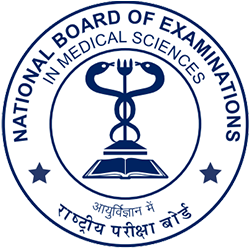Surgical Gastroenterology
Request an Appointment
The surgical gastroenterology department at Virinchi People’s Hospitals is staffed by expert professionals adept at treating a wide array of conditions including Barrett’s Esophagus, Esophageal Spasm, Gastrointestinal Reflux Disease, and many other gastrointestinal disorders. This team specializes in minimally invasive surgeries for anorectal cancer and benign gastrointestinal tumors, focusing on minimal scarring, quick recovery, and reduced postoperative discomfort.
Patient well-being is a top priority, with comprehensive care extending from pre to post-operative stages. Each treatment plan is tailored to the individual, recognizing the uniqueness of each case. Collaboration with specialists in related fields is a key aspect of their approach.
Communication with patients and their families is paramount, ensuring clarity on all aspects of the condition, treatment options, and expectations post-procedure. This comprehensive care approach contributes to the department’s recognition as a leading center in surgical gastroenterology in India.
Supported by advanced technology, the department also provides ancillary services like blood bank, ICU, radiology, and emergency services, ensuring high-quality, timely care.
Our Specialists
Chief Bariatric Surgeon, Director Department of Bariatric Minimum Invasive Surgery and GI Surgery

Dr. B. Ravindra Reddy
Sr. Consultant – General Surgery, Endocrine Surgery (Breast & Thyroid) & Gastrointestinal Surgery
Technology

Colonoscopy
Colonoscopy is a pivotal procedure offered for examining the colon and rectum. It plays a crucial role in the early detection and prevention of colorectal cancer, identifying polyps and other abnormalities. Our experienced specialists use advanced technology, ensuring a safe and comfortable experience with minimal discomfort for patients

ERCP
Our ERCP service specializes in diagnosing and treating disorders of the bile and pancreatic ducts. This advanced procedure combines endoscopic and fluoroscopic techniques to effectively manage conditions like gallstones and strictures. Our expert team ensures a high standard of care with a focus on patient safety and comfort.

Endoscopic Ultrasound (EUS)
EUS combines endoscopy with high-frequency ultrasound imaging to assess diseases of the digestive (gastrointestinal) tract and other nearby organs, including the pancreas, gall bladder, liver, and lymph nodes.
EUS can be used to diagnose and stage gastrointestinal cancers and detect inflammatory bowel disease, pancreatitis, and other causes of abdominal pain.EUS can also be used as a therapeutic tool for various procedures.

Endo-Surgery Generator
The Endo-Surgery Generator is a state-of-the-art device designed for advanced surgical procedures. It integrates seamlessly with various endoscopic instruments, offering precise control and improved efficiency in surgeries. With features like adjustable power settings and real-time feedback, it enhances the safety and effectiveness of minimally invasive surgeries.

3D Spies Camera System
Quality care to the patients suffering from complicated diseases
- Hernia
- Upper & Lower GI Disorder
- Endocrine Disorder
- Cardiac, Renal & Endocrine Diseases
- Intestinal Obstruction
- Perforation Peritonitis
- Emergency Surgeries after trauma
Treatments Offered
Oesophagectomy
Gastrectomy
Intestinal Resection
Colectomy
Cholecystectomy
CBD Exploration
Hepatico-Jejunostomy
Total Proctocolectomy
Shunt & Devascularization Surgeries
Ileal Pouch Anal Anastomosis
Biliary Strictures Surgeries
Laparoscopic Appendicectomy
Laparoscopic Cholecystectomy
Laparoscopic CBD Exploration
Laparoscopic Anti-reflux Surgery
Laparoscopic Adhesiolysis
Laparoscopic Hernia Repair
Laparoscopic Rectopexy
Laparoscopic Vagotomy
Laparoscopic Cardiomyotomy
Laparoscopic Assisted Colectomy
Diagnostic Laparoscopy and Biopsy
Laparoscopic Bariatric Surgery
Laparoscopic Inguinal Hernioplasty
Laparoscopic Incision Hernia Meshplasty
Laser for Pilonidal Sinus
Laparoscopic
EVLA laser for Varicose Veins and Piles
Colorectal and Fissure Surgery
Preparing for Cholecystectomy
Laparoscopic Cholecystectomy
Post-operative Care
Diagnostic Laparoscopy
Laparoscopic Adhesiolysis
Laparoscopic Appendectomy
Laparoscopic Cholecystectomy
Bariatric Surgery for Morbid Obesity
Benign Breast Diseases
Hernia Surgery
Upper GI Surgery
Lower GI Surgery
Breast Surgery
Head & Neck Surgery
Endocrine Surgery
Peripheral Vascular Surger
Investigations

Endoscopic Ultrasonography

Capsule Endoscopy

Manometry

Upper GI Endoscopy

ERCP

MRI

Enteroscopy








